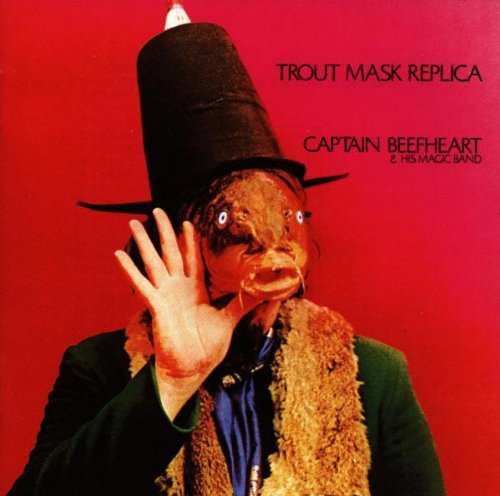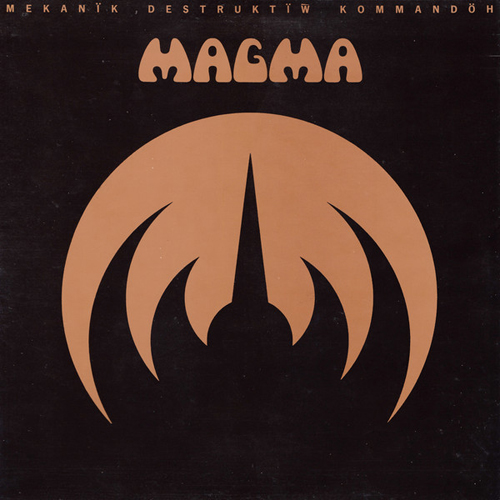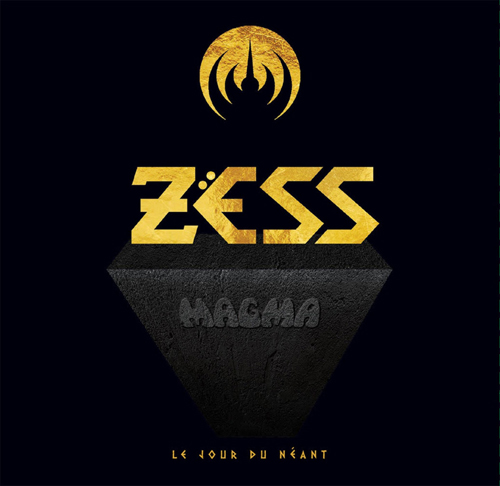Captain Beefheart is either a genius capable of composing and performing the most intricate and complex rhythms or he is just a beat poet singing to random noise, it’s really hard to tell, of course, the two are not necessarily mutually exclusive. While performing my last Personal Audio review I noticed that Qobuz had offered up “Trout Mask Replica” published by Zappa Records in 1969 in 24-bit/96khz so I jumped on it ready to use it to evaluate a new FiiO DAP, the M11 Plus LTD (review pending), and immediately discovered I had made a grave error. Despite a host of instruments, players, and complex layered rhythms the performance was just too chaotic for me to learn anything about the sound of the player. So I moved onto something else and decided to shelve Captain Beefheart until I was ready to write this music review. Though avant-garde music is my bread and butter, occasionally an artist is just too extreme for even my discriminating pallet, and I am reminded of my youth and the progressive rock band Magma (a band so extreme that they created their own language in which to compose their songs) who I have decided will comprise the second part of this review.

I will say that Headphones are a little too analytical for Captain Beefheart, listening through speakers gives the sound a chance to blend and create a cohesive whole, which while never melodic and no less chaotic does begin to resemble music. My favorite is probably “The Dust Blows Forward ‘n the Dust Blows Back” which is performed a cappella in his Tom Waits-like gravelly voice. The tape clicks punctuating each stanza gives the impression that it was completely improvisational and composed on the fly. Compositions like “Dachau Blues” evoke images of Charles Bukowski and there is a certain strained tension that is elicited by Captain Beefheart’s songs. The affinity between Frank Zappa and Captain Beefheart is clear, with a similar sense of the absurd, sarcastic satiric humor, and love of dissonance, while infinitely more complex than Zappa, it lacks the virtuoso performance and classical sense of precision and exactitude of Zappa. Though it does grow on you with repeated listening, it is definitely not music to relax to or tame the savage beast (enrage maybe, but never tame), it is also understandable why some call it the worse album ever made, it does smack of a “Producers” like flimflam spoof, except they toured together for years and Captain Beefheart put out several more albums, though they did become more musical as time went on, not to mention his huge following. But if you like your music on the edge, I heartily recommend you give it a try.
Magma was the most extreme progressive rock band ever. Not only did they create their own language, they contended that the space between notes (which sometimes encompassed minutes) was as important as the notes themselves, thus like Philip Glass they embraced complex rhythms as the core of music, but took it to a level even Steve Reich would consider extreme. Unlike the later ambient artists, on the other hand, they did not eschew vocals or engage in repetitive passages.
“Zëss: Le Jour Du Néant” is their most recent album (2019) and is offered up on Qobuz as a single 37:57 song though the album lists named passages: 1. “Ẁöhm Dëhm Zeuhl Stadium (Hymne au Néant)” (4:57), 2. “Da Zeuhl Ẁortz Dëhm Ẁrëhntt (Les Forces de l’Univers/Les Eléments)” (6:22), 3. “Dïwöóhr Spraser (La Voix qui Parle)” (5:12) , 4. “Streüm Ündëts Ẁëhëm (Pont de l’En-Delá)” (6:04), 5. “Zëss Mahntëhr Kantöhm (Le Maître Chant)” (8:08), 6. “Zï Ïss Ẁöss Stëhëm (Vers l’Infiniment)” (3:15), 7. “Dümgëhl Blaö (Glas Ultime)” (3:58). Only one original member Christian Vander (lead vocalist, composer, and drummer on all but this last album) remains but that is not all that surprising as half the band left after their first tour (1969) before their first album was released in 1970 and only one other member survived their first year. Of the eight musicians on that album, only four continued with the band until 1976, clearly Christian was a hard taskmaster or at least hard to get along with. Of those, one remained for another two years, and one remained until the band’s first breakup in 1984. A new band was reformed in 1989 that continues to this day though the lineup continues to be in flux.
I first encountered Magma in the mid-’70s when I auditioned for a progressive rock band that specialized in Gentle Giant and Magma songs. Though the jam was enjoyable, I found them to be too extreme to have any commercial value so I moved on, and Magma became my joking example of music that was too extreme for me to listen to. At least until a friend bought me one of their albums mistakenly thinking I liked the band.

“Mëkanïk Dëstruktïẁ Kömmandöh” is Magma’s most popular album on Qobuz so I will endeavor to review it and “Zëss: Le Jour Du Néant”.
I hate to admit it but Magma has aged well. Through the lens of contemporary music, I found it to be much more musical than I remembered it being. My first impression of “Mëkanïk Dëstruktïẁ Kömmandöh” was EDM (sans the annoying electronic drum/bass beat) meets opera. As one would expect from a band started and maintained by a drummer, percussion and rhythm play a major part in the Magma sound. And as they are a German band, the similarities to Wagner is probably not an accident. It is also reminiscent of Frank Zappa’s instrumental pieces as well as a hint of “Einstein On The Beach”.

“Zëss: Le Jour Du Néant” sounds like it is an actual opera and reflects a band that has matured and grown artistically strongly leaning on its Minimalism core, with a heavy orchestral backup. The vocal has a pleasant scat flavor to it, with African and Classic American Jazz influences. The central rhythm and underlying melody are provided by acoustical piano, with the myriad of other instruments woven around it. This could easily be one of the later Philip Glass pieces, and it is easy to see why Qobuz presented it as a single song.
Well, this has been an unusual month of discovery, one album I expected to love left me scratching my head, and a couple of albums I expected to hate ended up winning me over, and listening to selected tracks from other Magma albums I can even see why Qobuz lists them as Jazz though they have solidly earned their place in Progressive Rock history.
Until next month, remember it’s about the music.








Leave a Reply
Want to join discussion?
Feel free to contribute!